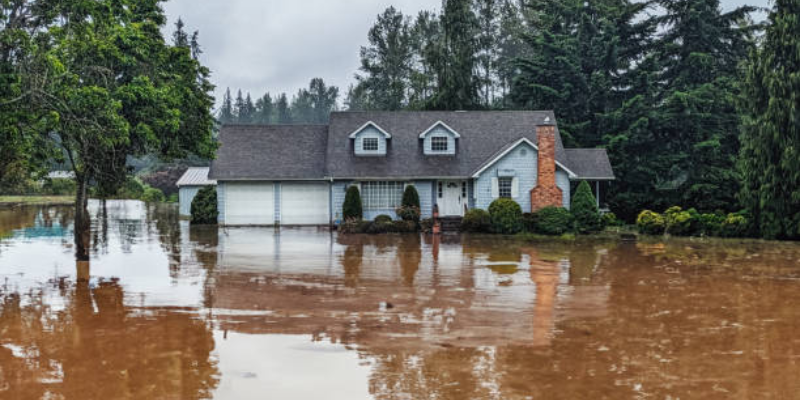How to File a Home Insurance Claim
Life is not always a bed of roses. From a burst pipe flooding the living room to a storm ripping the roof off, one should have knowledge on how to file a home insurance claim. It might seem like a lot of work and unnecessarily stressful, but filing a claim does not have to be that way. This guide will provide information that one needs to successfully manage home insurance claims, including comprehending your policy and getting your payment.
Your Policy Terms Explained
First things first, your policy terms must be explained. It is astonishing the number of people who do not understand their home insurance and its use until it is too late. Make sure you understand the terms of your coverage including replacement cost coverage versus actual cash value coverage that could affect how much is paid on items or repairs that were damaged.

With replacement cost coverage, an insurance company will pay to replace an item for what it costs today, regardless of depreciation. With actual cash value, depreciation is considered, which means the sum may not be sufficient to purchase a new item. Understanding these nuances can spare you from hassles later.
Also, review any exclusions in the coverage. Some policies may not cover certain damages like flooding or earthquakes, or would require you to purchase riders for added coverage. If you reside in an area where natural calamities are a regular occurrence, securing additional coverage can help mitigate financial losses in the worst case scenario.
Document Everything
This is particularly true for people who take care of matters concerning the home insurance claim process because when something happens to your home that requires filing a claim, the first thing you should do and one of the most important tasks you can take is to take photographs and videos. These are the most important tasks that you can do to aid the insurance company. NZ Insurance Claim is one of the premier insurers in New Zealand that will ensure that you get maximum payout.
Ensure to keep all the invoices regarding the emergency repairs carried out before the adjuster's visit. For example, if there are leaks that lead to some structural damage, make sure to document all those expenses as they may be recoverable under the specific conditions of your policy. Be sure to keep good notes because they will help you receive due reimbursement for the damages you have suffered.
Act with Urgency for Insurance Related Services
Filing a home insurance claim is one of those tasks where every minute is essential. Claims are usually required to be made within a period of time after the event has taken place. This action is important because not notifying the insurance company may lead to issues or even the claim being rejected. Therefore, report the matter to your insurance company as soon as you can after the damage has occurred.
When you speak with them for the first time, they will expect basic information from you. Mention the date and time when the loss occurred, where it took place, and also the level of loss that you have experienced. Most likely an adjuster will be put in charge and they will ask questions to dig deeper and analyze how bad the damage is. Be careful to only provide accurate information because misinformation can put your claim at risk.
Make Ready for the Adjuster’s Visit
At this stage, when the adjuster contacts you to set up a visit, make sure you get ready beforehand. Make sure you have an organized folder of all documents, photos, and lists of damaged property that need to be shown during the inspection. The more prepared you are, the easier the process will be.
If you can, try to be there during the assessment; this enables you to point out areas that concern you directly to the adjuster. Furthermore, make sure to clarify their findings and estimates and ask some questions. Knowing their reasoning gives you an understanding of where you might believe you are owed more than they offer.

If you need assistance, you can hire an independent public adjuster who can represent you. Public adjusters tend to advocate for the policyholders’ interests and often negotiate settlements for them which are more favorable as compared to self-representation during the claims process.
Review Estimate and Settlement Offer
The insurance company will have sent you an estimate comprising the repair costs that fall under coverage of your policy, along with a settlement offer. It is important to go through both documents in detail to be sure that there are no significant aspects of the damage which have been overlooked or undervalued.
If there is something wrong with the estimate you received, or if you think that the settlement you are offered is not sufficient, do not be afraid to contest it. Using evidence that supports your argument is extremely important, such as estimates from contractors or professional appraisals. Negotiating in this manner, and doing it efficiently, can help to get you a larger payout that can cover all the necessary repairs.
Get Legal Help When Needed
Some disputes over claims endure, no matter how much effort you have placed in trying to resolve them amicably. In these circumstances, if setting negotiations becomes extremely difficult, then it is better to have a legal expert by your side. An attorney that specializes in insurance law can assess the situation objectively for you and then help you determine if approaching through litigation is appropriate – depending on the scenario.
Remember that going to court should not be the first reason to get a lawyer. Simply retaining legal representation is often enough to prompt insurance companies to review their initial position and seek further favorable resolutions without formal proceedings.
Stop Further Problems from Reoccurring
Finally, once your current claim is solved, try to maintain techniques that can prevent similar issues from occurring in the future. Checking your premises regularly will allow you to identify and fix minor issues before they escalate, saving you time and effort down the line. Also, incorporating smoke detectors, carbon monoxide alarms, and other safety measures can not only lower the premiums that you pay in the long run but help to ensure safety from accidents, too.
Additionally, annually reviewing your insurance policy to make changes to limits where needed is crucial. This partially hinges on how much the market has changed or how much the home has aged over time. A lot of homes tend to require updates for adequate protection during deficient coverage balance.

Staying Proactive
A home insurance claim does not have to be a horrific process. Making sure that you are informed and taking steps such as communicating with your insurance provider as well as comprehending the policy can save you trouble during the negotiation of the settlement. Of course, life is unpredictable, but being prepared can help relieve a lot of stress as well as allow you to recover quickly.
Keep these tips in mind the next time you encounter an unforeseen repair in your home. Staying calm, acting quickly, remembering to note down information, having open discussions, and being protective of your rights will greatly aid. You have every right to be at ease knowing that you did everything you could in order to preserve the future of your family and home.
Getting Help for Damage Recovery
Any assistance that is needed regarding the claim process can be easily attained through online platforms. Make sure to look for trusted sources that are available locally as well. What you have at stake is extremely valuable, your home, so empowering yourself with knowledge is the form of protection you need. Keep being curious, keep being informed and make sure to safeguard matters!


